Along with the rapid development trend of global e-commerce, the scale of Vietnam's e-commerce market in 2024 has reached the milestone of 25 billion USD, contributing nearly 10% of the total revenue of consumer goods and services nationwide in 2024. The e-commerce market is an attractive investment destination for many foreign investors, helping Vietnamese consumers become global consumers. Vietnamese small and medium-sized enterprises have taken advantage of modern platforms to develop distribution channels for goods and products.
We have witnessed an explosive development trend of e-commerce in recent times, which is livestream sales. In addition to providing consumers with a choice of products to serve their needs, the "explosion" of livestream sales without control leads to buyers spending real money but buying poor quality products. The story of Miss International Nguyen Thuc Thuy Tien, Quang Linh Vlogs, Hang "nomad" livestreaming to sell vegetable candy, exaggerating the product's function is an example. The lack of control over livestream sales not only affects consumers, but the State also loses a significant amount of tax revenue from "closing orders" sessions up to billions of dong.
Meanwhile, current legal regulations regulate livestream sales activities like an advertising activity accompanying sales, without specific regulations on subjects participating in livestream such as: account owners, livestream participants, minimum information fields that must be provided to viewers, professional qualifications of livestreamers, account owner identification, tax obligations and issues of information control during livestream broadcasting.
Due to lack of information, consumers find it difficult to verify the reliability of sellers on e-commerce platforms if information about the seller is not clear and transparent. This directly affects the rights of consumers and reduces consumer confidence in e-commerce platforms. The lack of strict regulations on verifying and storing seller information makes the investigation and handling of violations in e-commerce transactions complicated. It is difficult for authorities to trace warehouses or sellers when violations occur.
To fill this legal gap, the draft Law on E-commerce has clearly regulated livestream sales activities. Accordingly, the owner of the e-commerce platform in livestream sales activities must authenticate the identity of the livestreamer, publicize and implement mechanisms and measures to control the livestream sales content in real time. The draft Law also specifically regulates the responsibilities of sellers in livestream sales activities. Specifically, sellers must fully provide livestream sellers with documents proving that they meet investment and business conditions for conditional investment and business sectors and professions before livestreaming sales; documents and papers proving that they meet product and goods quality requirements according to the law on product and goods quality.
Along with that, the draft Law also specifically stipulates the responsibilities of livestream sellers. Accordingly, livestream sellers must provide information to the owner of the e-commerce platform for identification and electronic authentication. They must not provide false or misleading information about the uses, origin, quality, price, promotions, warranty policies and other content related to goods and services; must properly implement advertising content that has been confirmed by competent authorities for goods and services that are required by law to confirm advertising content...
Thus, the requirement to provide electronic identification and authentication in the draft Law shows that the drafting agency hopes to restore order and transparency to the livestream market in particular and to e-commerce activities in general. With regulations on responsibilities for each entity, the passed Law on E-commerce will create a transparent and equal playing field for those participating in business on e-commerce platforms. This also means that we are creating a safe "shield" to protect consumers from the problem of counterfeit, fake, and poor quality goods that are rampant in e-commerce transactions.
Source: https://daibieunhandan.vn/la-chan-bao-ve-nguoi-tieu-dung-10394050.html


![[Photo] Panorama of the Patriotic Emulation Congress of Nhan Dan Newspaper for the period 2025-2030](https://vphoto.vietnam.vn/thumb/1200x675/vietnam/resource/IMAGE/2025/11/04/1762252775462_ndo_br_dhthiduayeuncbaond-6125-jpg.webp)
![[Photo] The road connecting Dong Nai with Ho Chi Minh City is still unfinished after 5 years of construction.](https://vphoto.vietnam.vn/thumb/1200x675/vietnam/resource/IMAGE/2025/11/04/1762241675985_ndo_br_dji-20251104104418-0635-d-resize-1295-jpg.webp)
![[Photo] Ho Chi Minh City Youth Take Action for a Cleaner Environment](https://vphoto.vietnam.vn/thumb/1200x675/vietnam/resource/IMAGE/2025/11/04/1762233574890_550816358-1108586934787014-6430522970717297480-n-1-jpg.webp)

![[Photo] Ca Mau "struggling" to cope with the highest tide of the year, forecast to exceed alert level 3](https://vphoto.vietnam.vn/thumb/1200x675/vietnam/resource/IMAGE/2025/11/04/1762235371445_ndo_br_trieu-cuong-2-6486-jpg.webp)





















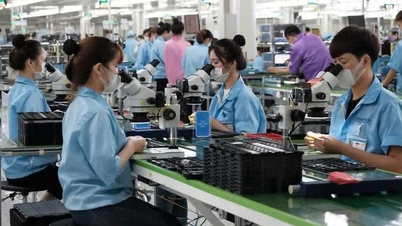






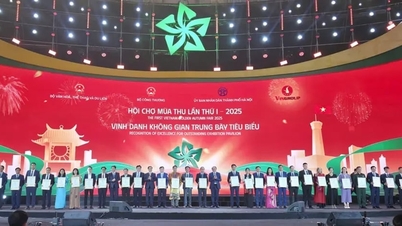


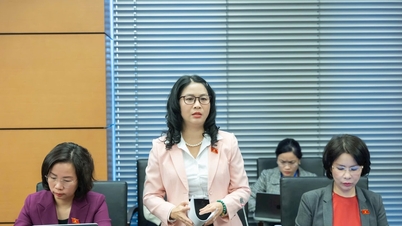

















































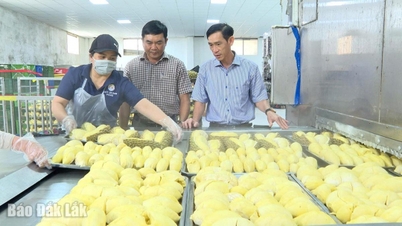



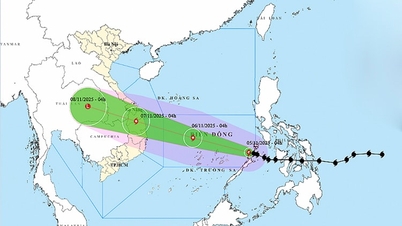

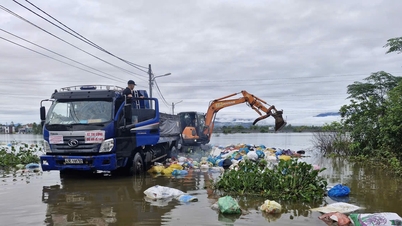
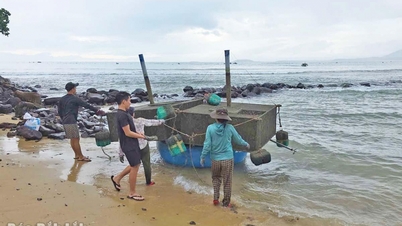













Comment (0)